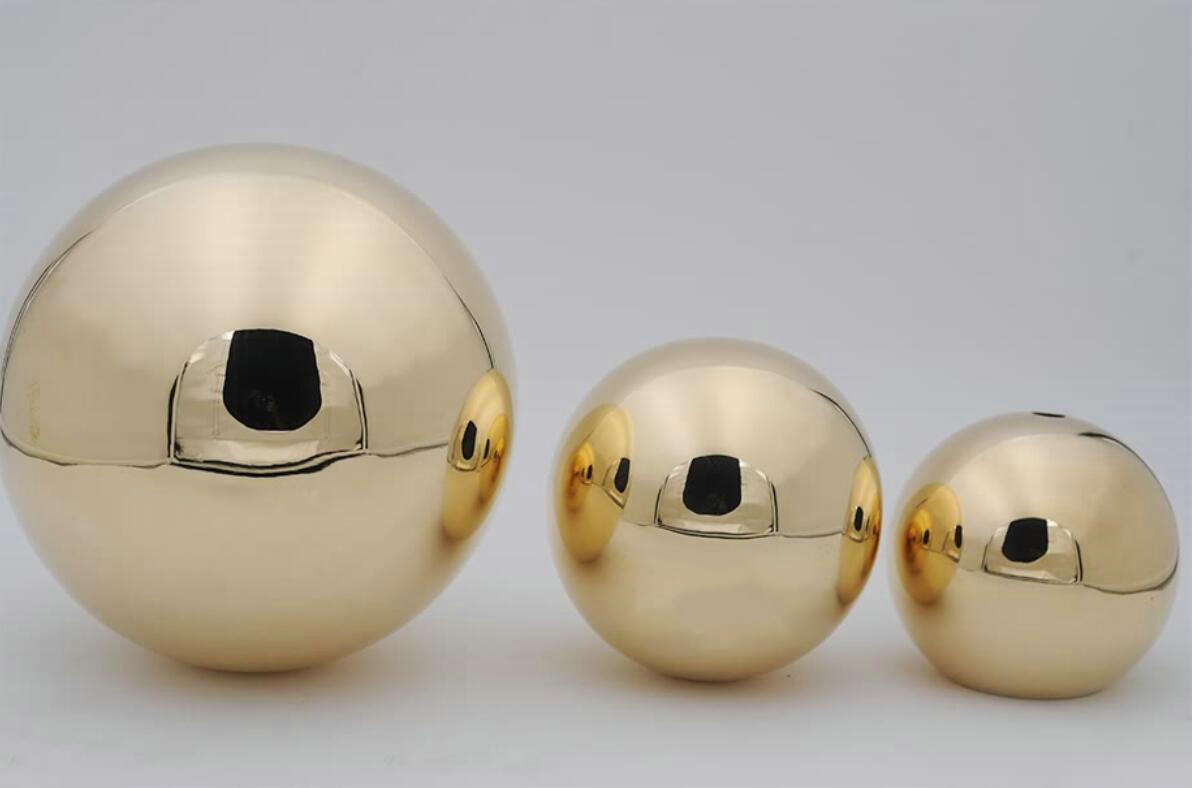Hollow brass balls are versatile components used across a variety of industrial applications due to their unique properties. Their lightweight nature, coupled with the inherent qualities of brass, makes them highly suitable for diverse uses.
This article delves into the numerous benefits of using hollow brass balls in industrial settings, exploring their physical properties, cost-effectiveness, applications, and advantages over other materials.
Physical Properties of Hollow Brass Balls
Lightweight
One of the most notable benefits of hollow brass balls is their lightweight nature. Unlike solid balls, hollow brass balls significantly reduce the overall weight of machinery and components without compromising on strength. This weight reduction is crucial in industries where weight is a critical factor, such as aerospace and automotive manufacturing.
Strength and Durability
Despite being hollow, these brass balls maintain excellent strength and durability. Brass, an alloy of copper and zinc, is known for its resistance to corrosion and wear. The structural integrity of hollow brass balls ensures they can withstand high stress and harsh environmental conditions, making them suitable for heavy-duty applications.
Corrosion Resistance
Brass offers superior corrosion resistance, especially in environments where exposure to moisture, chemicals, and other corrosive agents is common. This property extends the lifespan of hollow brass balls, reducing maintenance and replacement costs in industrial settings.
Aesthetic Appeal
Brass has a distinct, appealing look with a bright, gold-like appearance. This makes hollow brass balls suitable for decorative purposes in addition to their functional uses. Industries that require both functionality and aesthetics, such as architecture and design, benefit greatly from using brass components.
Cost-Effectiveness
Material Efficiency
The manufacturing process of hollow brass balls involves less material compared to solid balls, making them more cost-effective. The reduction in material usage does not compromise the balls’ performance, allowing industries to achieve the desired outcomes at a lower cost.
Energy Savings
Hollow balls require less energy to produce and transport due to their reduced weight. This translates to significant savings in energy costs, especially for industries involved in large-scale manufacturing and distribution.
Lower Maintenance Costs
The durability and corrosion resistance of brass lead to lower maintenance requirements. Hollow brass balls do not need frequent replacements or repairs, resulting in long-term cost savings for industries that use them extensively.
Applications of Hollow Brass Balls
Aerospace Industry
In the aerospace industry, weight is a critical factor. Hollow brass balls are used in various components of aircraft and spacecraft to reduce weight without compromising on strength and performance. Their corrosion resistance is particularly beneficial in this industry, where exposure to harsh environments is common.
Automotive Industry
The automotive industry benefits from the lightweight and durable nature of hollow brass balls. They are used in various components, including valve mechanisms, control systems, and decorative elements. The weight reduction contributes to improved fuel efficiency and performance of vehicles.
Chemical Industry
The chemical industry often deals with corrosive substances, making the corrosion resistance of brass highly valuable. Hollow brass balls are used in valves, pumps, and other equipment that comes into contact with aggressive chemicals, ensuring long-lasting performance and safety.
Marine Industry
In marine environments, where exposure to saltwater and other corrosive elements is inevitable, hollow brass balls are ideal. They are used in various marine applications, including navigation systems, buoyancy aids, and decorative elements on ships and boats.
Architectural and Decorative Applications
The aesthetic appeal of brass, combined with its functional properties, makes hollow brass balls suitable for architectural and decorative applications. They are used in building facades, interior design elements, and art installations, adding a touch of elegance and durability.
Advantages Over Other Materials
Comparison with Steel
Steel is another common material used in industrial applications. However, hollow brass balls offer several advantages over steel balls:
- Weight: Hollow brass balls are lighter than steel balls, reducing the overall weight of components and machinery.
- Corrosion Resistance: Brass offers better corrosion resistance compared to most types of steel, particularly in environments with moisture and chemicals.
- Aesthetic Appeal: Brass has a more attractive appearance compared to steel, making it suitable for both functional and decorative applications.
Comparison with Plastic
Plastic balls are used in some industrial applications due to their lightweight nature and low cost. However, hollow brass balls have distinct advantages:
- Strength and Durability: Brass is much stronger and more durable than plastic, making hollow brass balls suitable for high-stress applications.
- Temperature Resistance: Brass can withstand higher temperatures compared to plastic, which can deform or degrade under extreme conditions.
- Environmental Impact: Brass is more environmentally friendly than plastic, as it is recyclable and has a longer lifespan, reducing waste and environmental pollution.
Environmental Benefits
Recyclability
Brass is highly recyclable, which is a significant environmental benefit. Hollow brass balls, once they reach the end of their life cycle, can be recycled and repurposed, reducing the demand for new raw materials and minimizing environmental impact.
Longevity
The durability and corrosion resistance of hollow brass balls contribute to their long lifespan. This reduces the frequency of replacements, leading to less waste and a lower overall environmental footprint compared to materials that require more frequent replacements.
Reduced Energy Consumption
The production and transportation of hollow brass balls consume less energy due to their lightweight nature. This contributes to lower carbon emissions and a smaller environmental footprint, making them a more sustainable choice for industrial applications.
Conclusion
Hollow brass balls offer numerous benefits for industrial applications, including their lightweight nature, strength, durability, and corrosion resistance. They are cost-effective, environmentally friendly, and suitable for a wide range of industries, from aerospace to automotive, chemical, marine, and architectural applications.
The advantages of hollow brass balls over other materials, such as steel and plastic, further highlight their value in industrial settings. As manufacturing techniques and technologies continue to evolve, the use of hollow brass balls is expected to grow, driven by the need for more efficient, durable, and sustainable industrial components.
Stay in touch to get more updates & new discovertribune.org!




